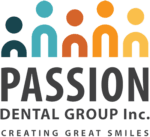Toothaches, cavities, and gum problems are all widespread dental issues that can result in severe pain and long-term destruction if they are not treated. It’s simple to neglect dental hygiene until the pain arrives, but by that point, it’s usually too late to stop significant problems.
If you’ve ever been frustrated with keeping your teeth healthy, you’re not alone. We understand that life gets busy, and oral care isn’t always a top priority. But staying ahead of problems is easier than you think.
With guidance from a trusted biological dentist near you, you can take small steps to protect your teeth every day.
Why Is Protecting Your Teeth Important?
Your teeth and gums do more than assist you in eating. They contribute to speech, facial appearance, and even your overall health. If you neglect oral hygiene, you may develop tooth decay, gum disease, and infection that can spread to the rest of your body. Proper mouth care prevents pain, saves you money on future procedures, and maintains a healthy smile, thus helping you protect your teeth.
8 Tips to Protect Against Common Dental Problems
Begin with the Essentials: Everyday Habits Count
One of the best dental health tips for a bright smile is maintaining a regular routine. Brush twice daily with fluoride toothpaste and floss once a day to get rid of food and plaque.
Drink lots of water and attempt to limit too much sugar. These routines might appear insignificant but are extremely effective in safeguarding your teeth against decay and gum issues.
Choose Your Food Wisely
Your diet plays a major role in your oral health. Sticky, sweet snacks fuel the bacteria that lead to tooth decay. Instead, consume more crunchy fruits and vegetables such as apples and carrots. These clean your teeth as you chew and stimulate saliva, which helps prevent cavities.
Wear Protection During Sports
If you play contact sports or grind your teeth during sleep, a mouthguard can prevent damage to your teeth. Mouthguards cushion your teeth against blows or grinding and may prevent cracks, chips, and even tooth loss.
Don’t Skip Dental Checkups
Regular visits to your dentist are important. Your dental crew can identify and repair issues early, before they become more serious.
A biological dentist in Calgary can also explain how oral health relates to overall health. They tend to employ safer, holistic methods that take your entire body into consideration.
Spot Problems Early
Pay attention to signs like bleeding gums, tooth sensitivity, or persistent bad breath. These can be early warnings of gum disease or cavities. The earlier you catch them, the easier they are to treat. Avoiding treatment can lead to tooth loss, infections, and bigger dental bills.
Avoid Using Teeth as Tools
Teeth are strong, but they aren’t meant to open bottles, crack nuts, or tear packages. Using them like this can cause fractures or breakage. Always use the right tools to avoid emergency dental visits.
Make Healthy Choices for Your Whole Body
What you do for your overall health affects your teeth, too. Smoking and heavy alcohol use can raise your risk of gum disease and oral cancer. By quitting smoking and drinking in moderation, you’re protecting more than just your mouth.
The Role of a Biological Dentist
Biological dentists focus on treating your mouth in a way that supports your entire body. They may use non-toxic materials, avoid fluoride in some cases, and look at how dental issues can affect overall health.
If you’re looking for a more natural approach, working with a biological dentist might be a great option for long-term care.
Wrapping Up!
Taking care of your teeth isn’t just about avoiding pain; it’s about feeling confident and staying healthy. With simple daily habits, mindful food choices, and help from dental professionals, you can reduce your risk of common problems.
If you’re ready to start taking better care of your smile, the team at Maxwell Dental is here to guide you at every step of the way.
Healthy Habits Make Strong Smiles
Book your visit with Maxwell Dental today and get personalized care to support your long-term dental health.

